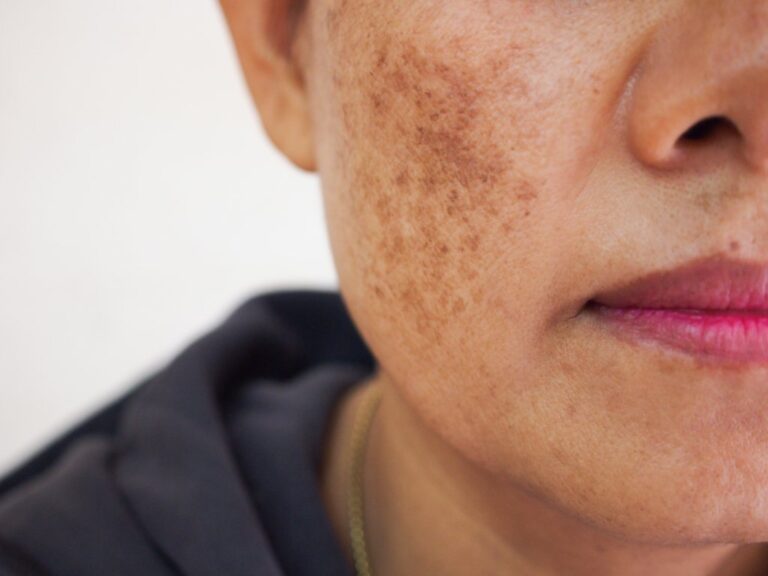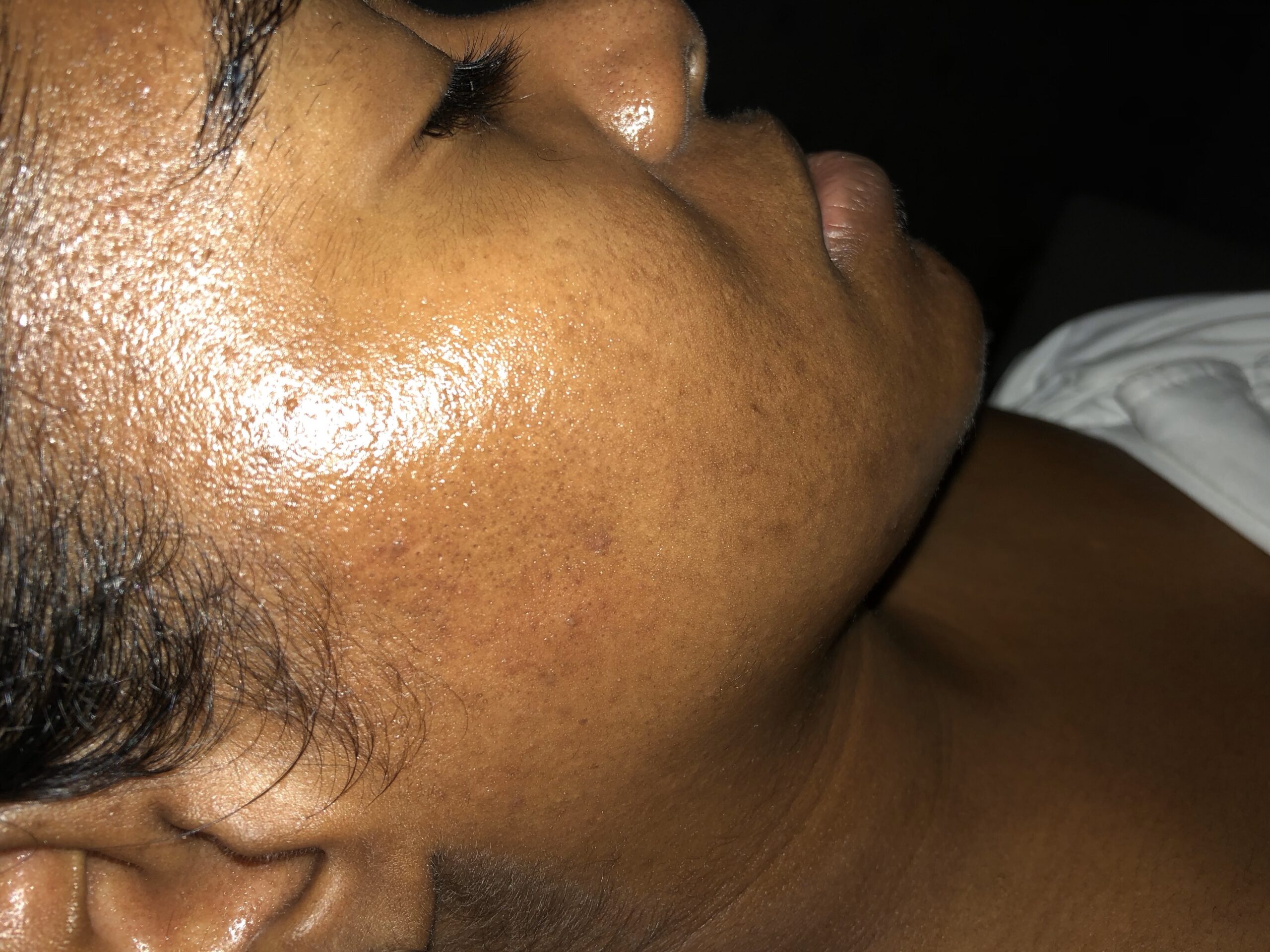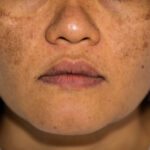Melasma is a condition that affects people with brown/dark skin. It is caused by dysfunctions in the cells that produce and contain melanin.
Melasma causes irregular black patches on the skin.
Who can be affected by Melasma?
Melasma affects people of all skin types and races. However, people with dark skin tones are prone to melasma, particularly women between ages 21 to 40.
What causes melasma?
Melasma can be caused by many factors, though the immediate cause is often unknown.
First, it is common among people who have a family history of melasma.
It can also be caused by hormonal changes, particularly in women. It is called the ‘mask of pregnancy as it sometimes happens when a woman is pregnant or uses birth control pills.
Stress can also cause melasma.
Can Sunlight be a Factor?
Yes. Exposure to the sun is another predominant cause of melasma. Ultraviolet rays from the sun can stimulate melanocytes, which are pigment-producing cells, to produce more pigment.
People with brown and black skin have huge amounts of melanocytes in their body, and exposure to sun rays, even if little, can cause melasma.
Melasma caused by hormonal changes can clear after there is a change in the hormonal balance, but when it is caused by exposure to sun rays, it could worsen and be long-lasting. Even if treated, it could reoccur from further exposure.
Treating Melasma
Identifying the cause of melasma helps to treat it better. If it is caused by pregnancy, for instance, it will most likely clear up after childbirth.
If you notice melasma after using contraceptives or certain creams and medications, you might want to discontinue them and consider alternatives.
Your dermatologist might suggest other procedures to you. Hydroquinone, azelaic acid, glycolic acid, chemical peels, microdermabrasion, and others might be suggested.
Sun Protection
Exposure to UV radiation from the sun is one of the biggest causes of melasma, so you have to protect yourself from excess sun exposure, whether you’re trying to avoid getting it, or you have it and you don’t want it to worsen.
You must wear sunscreen every day. The sunscreen you wear should be a broad spectrum, SPF sunscreen that can stop sunlight from directly radiating on your skin.



